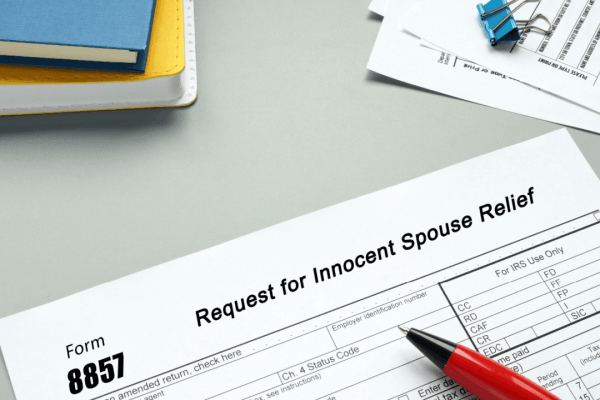
When and Why to Hire a Tax Lawyer: Complete Guide for Taxpayers
Critical Situations: When and Why to Hire a Tax Lawyer
Understanding when and why to hire a tax lawyer can help you address serious tax matters appropriately. Most taxpayers handle routine tax filing independently, but certain complex situations demand professional legal expertise. This comprehensive guide explores the specific circumstances that warrant hiring a tax attorney, the benefits they provide, and how to choose the right legal representation for your tax matters.
Tax attorneys differ significantly from CPAs and enrolled agents in their scope of practice and protective privileges. While CPAs excel at tax preparation and financial planning, and enrolled agents handle IRS representation for routine matters, tax lawyers provide attorney-client privilege protection, court representation rights, and criminal defense capabilities that other professionals cannot offer.
Critical situations requiring legal intervention include IRS criminal investigations, fraud allegations, substantial penalty assessments exceeding $10,000, international tax compliance issues, and complex business tax disputes. Early intervention proves crucial in these scenarios, as delayed response can limit resolution options and increase penalties. The cost-benefit analysis typically favors legal representation when potential penalties exceed attorney fees by significant margins, particularly in cases involving criminal exposure, multi-jurisdictional audits, or high-stakes business transactions where professional guidance prevents costly mistakes and protects long-term financial interests.
Red Flag: IRS Audit and Investigation Scenarios
Criminal vs. Civil Tax Matters
Criminal tax investigations involve potential fraud charges, willful failure to file returns, or tax evasion allegations that carry prison sentences up to five years and substantial fines. Unlike civil audits focused on tax collection, criminal cases aim to prosecute taxpayers for intentional violations. Warning signs include special agents from IRS Criminal Investigation Division (CID) making contact, Miranda rights being read, or requests for bank records spanning multiple years. Civil matters involve disputes over tax liability, deductions, or reporting positions, while criminal cases require proof of willful intent to evade taxes.
When Audit Defense Requires Legal Privilege
Standard audits conducted by revenue agents typically don’t require legal representation, but certain scenarios demand attorney involvement for privilege protection. These include allegations of fraud, substantial understatement penalties exceeding 20%, examinations involving multiple tax years, or cases where the IRS questions your intent or knowledge. Attorney-client privilege becomes crucial when discussing tax planning strategies, potential compliance issues, or sensitive communications that could be misconstrued as evidence of willful misconduct.
IRS Criminal Investigation Division Involvement
CID involvement signals serious criminal exposure requiring immediate legal counsel. Special agents possess law enforcement authority, can execute search warrants, and coordinate with federal prosecutors. They investigate complex tax schemes, unreported income exceeding $70,000 annually, or organized tax fraud operations. CID cases have a 90% conviction rate, making early legal intervention essential. Asset seizure and levy threats, whistleblower claims alleging substantial underreporting, or informant cases targeting specific taxpayers all warrant immediate attorney consultation to protect constitutional rights and minimize criminal exposure.
Complex Cases: When and Why to Hire a Tax Lawyer for Business Issues
International Tax Reporting Requirements
International tax compliance involves intricate reporting obligations that carry severe penalties for errors or omissions. Foreign Bank Account Reports (FBAR) require disclosure of overseas accounts exceeding $10,000, with penalties reaching $12,921 per unreported account. The Foreign Account Tax Compliance Act (FATCA) mandates additional reporting for specified foreign assets, with penalties up to $60,000 annually. Tax attorneys navigate these complex requirements, handle voluntary disclosure programs for non-compliant taxpayers, and defend against willful FBAR penalties that can equal 50% of account balances.
High-Net-Worth Estate Planning
Estate and gift tax planning for high-net-worth individuals requires sophisticated legal strategies to minimize transfer taxes while achieving family objectives. Current estate tax exemptions exceed $12 million per person, but complex trust structures, valuation discounts, and generation-skipping strategies demand legal expertise. Tax attorneys coordinate with estate planners to implement grantor trusts, family limited partnerships, and charitable planning techniques that maximize tax efficiency while ensuring legal compliance.
Multi-State Business Tax Issues
Businesses operating across multiple states face complex apportionment rules, nexus determinations, and conflicting tax obligations. Corporate restructuring, mergers, and acquisitions require careful tax planning to minimize state and federal consequences. Partnership disputes involving income allocations, distributions, and basis adjustments often require legal intervention. Tax attorneys understand interstate tax compacts, uniform division of income rules, and can represent clients in multi-jurisdictional audits and controversies that exceed local practitioners’ capabilities.
Strategic Planning: Tax Lawyer Benefits vs. Other Professionals
Attorney-Client Privilege Advantage
Unlike communications with CPAs or enrolled agents, conversations with tax attorneys are protected by attorney-client privilege, meaning the IRS cannot compel disclosure of your discussions. This protection extends to tax planning strategies, potential compliance issues, and sensitive financial information. During IRS examinations or criminal investigations, this privilege becomes invaluable for maintaining confidentiality while developing defense strategies. CPAs lack this protection, and their communications can be subpoenaed, potentially damaging your case.
Tax Court Representation Rights
Only attorneys can represent clients in all federal courts, including Tax Court litigation beyond small case procedures. While enrolled agents can handle Tax Court petitions under $50,000, complex cases requiring extensive litigation, appeals, or precedent-setting arguments need attorney representation. Attorneys can also represent clients in federal district courts and courts of appeals for tax-related matters, providing comprehensive legal coverage that other professionals cannot offer.
Settlement Negotiation Strategies
Tax attorneys bring sophisticated negotiation skills developed through legal training and courtroom experience. They understand IRS internal procedures, agent motivations, and settlement precedents that maximize favorable outcomes. Their ability to credibly threaten litigation provides leverage in negotiations that CPAs cannot match. Additionally, attorneys often possess cross-practice expertise in corporate law, estate planning, and criminal defense, enabling comprehensive solutions that address multiple legal and business concerns simultaneously.
Cost Analysis: When and Why to Hire a Tax Lawyer Makes Financial Sense
Fee Structures and Billing Methods
Tax attorneys typically charge hourly rates ranging from $300 to $1,000 or more, depending on experience, location, and case complexity. Simple matters may cost $2,000-$5,000, while complex audits or criminal investigations can reach $50,000 or higher. Some attorneys offer flat fees for routine matters like voluntary disclosures or installment agreements. Contingency arrangements are rare in tax law but occasionally available for refund claims or penalty abatement cases where recovery is likely. Most firms require substantial retainers upfront, though some offer payment plans for qualifying clients.
Cost-Benefit Analysis Framework
The decision to hire counsel becomes financially justified when potential penalties exceed legal fees by a significant margin. Consider these factors: accuracy penalties can reach 20-40% of unpaid taxes, criminal cases carry potential prison time and massive fines, and professional reputation damage from tax problems can impact future earning capacity. Complex international matters, business tax disputes, or estate tax audits typically generate returns on legal investment through reduced penalties, negotiated settlements, and strategic tax planning that prevents future issues.
Selection Process: Finding the Right Tax Attorney for Your Case
Essential Qualifications to Verify
When selecting tax counsel, verify their bar admission in your state and any relevant federal court admissions for Tax Court proceedings. Look for attorneys with specific certifications like Board Certification in Tax Law or LLM degrees in taxation. Specialization matters significantly—criminal tax attorneys handle IRS investigations, international tax lawyers navigate cross-border compliance, and estate tax specialists focus on transfer tax issues. Review their track record with cases similar to yours and recent outcomes.
Questions to Ask During Consultation
Ask about their specific experience with your type of tax issue and recent case results. Inquire about fee structure, whether hourly or flat rates, and request cost estimates. Understand their communication style and availability—will you work directly with the attorney or associates? Discuss their approach to resolution and timeline expectations for your case.
Red Flags When Selecting Counsel
Avoid attorneys who guarantee specific outcomes or lack specialized tax experience. Be wary of unreasonably low fees, excessive upfront demands, or poor communication during consultation. Ensure any attorney maintains active knowledge of current tax law and IRS practices regardless of firm size.
Final Assessment: Should You Hire a Tax Lawyer Now?
The decision to hire a tax lawyer hinges on urgency, complexity, and financial stakes. You should act immediately if you’re facing IRS audit notices, criminal investigation letters, tax liens, asset seizure threats, penalties exceeding $10,000, or suspected fraud allegations. These situations require specialized legal expertise that goes beyond standard tax preparation.
When evaluating your need for legal representation, consider the complexity of your situation, potential penalties versus legal fees, approaching deadlines, and whether the issues exceed your current advisor’s expertise. Multi-state filings, international income, intricate business structures, and employment tax disputes typically warrant professional legal intervention.
To move forward, assess the urgency of your situation using the criteria above, document all relevant tax materials, research qualified tax attorneys in your area, and schedule consultations with multiple candidates to compare fees and experience. When facing significant penalties, complex legal issues, or potential criminal exposure, professional representation may be appropriate for your situation.
Next Steps: Get Professional Tax Legal Consultation Today
Don’t wait until IRS problems escalate beyond repair. If you’re facing complex tax issues, criminal investigation, or business tax disputes, contact a qualified tax attorney immediately.
Visit tax debt lawyer to learn more about our services and schedule your free initial consultation. We’ll evaluate your case and explain when and why you need expert tax legal representation for your specific situation. Discuss your tax situation with our experienced team.
Frequently Asked Questions
1. When should I hire a tax lawyer instead of a Certified Public Accountant?
Hire a tax lawyer when facing criminal tax investigations, Internal Revenue Service disputes requiring court representation, or complex legal issues involving attorney-client privilege protection.
2. How much does it cost to hire a tax lawyer?
Tax lawyers typically charge $300-$1,000+ per hour depending on experience and case complexity. Some offer contingency arrangements for certain penalty abatement cases.
3. Can a tax lawyer help with Internal Revenue Service payment plans?
Yes, tax lawyers can negotiate installment agreements, offers in compromise, and currently not collectible status with the Internal Revenue Service on your behalf.
4. Do I need a tax lawyer for a simple audit?
Simple audits can often be handled by Certified Public Accountants or enrolled agents. Consider a tax lawyer if criminal issues arise or the audit involves substantial amounts.
5. What's the difference between a tax lawyer and tax resolution company?
Tax lawyers provide legal representation with attorney-client privilege, while tax resolution companies often use non-attorney representatives with limited authority and no privilege protection.
Key Takeaways
- Criminal Exposure: Hire immediately when facing potential criminal tax charges or fraud allegations
- Complex Transactions: International tax issues, business restructuring, and high-value estate planning require legal expertise
- Attorney Privilege: Only lawyers provide confidential communication protection during IRS proceedings
- Cost Considerations: Evaluate potential penalties against legal fees—complex cases often justify the expense
- Timing Matters: Early intervention by tax lawyers typically results in better outcomes and lower total costs
Free Tax Case Review
If you are struggling with tax debt or have received a letter from the IRS complete the form below.Advertising. This site is a marketing service and does not provide legal or tax advice. Submitting information does not create an attorney-client, tax professional-client, or any other advisory relationship. Results are not guaranteed. A list of participating attorneys, tax firms, and tax providers is available here.
IRS Audit
You received an audit notice from the IRS
Tax Debt Relief
You owe the IRS money and are looking for relief options
Wage Garnishment
The IRS is taking part of your wages to pay off your debt
Tax Lien
The IRS put a legal claim on your property
IRS Property Seizure
The IRS is going to take your property to pay down or pay off your tax debt
Penalty Abatement
You want to request to remove or reduce penalties assessed by IRS
Innocent Spouse Relief
Relief from joint tax debt caused by your spouse or former spouse
Tax Debt FAQ
Common facts, questions and answers about tax debt and tax debt reilef
Tax Debt Lawyer
A tax debt lawyer can help you with your tax debt problems
Recent Posts
- Who Is Eligible for Innocent Spouse Relief and How Does It Work?
- What is an Effective Tax Strategy for Married Couples
- What are the Proofs of Innocent Spouse Relief?
- What Form Do You Use for an Innocent Spouse? | Complete IRS Filing Guide
- What Are the Four Types of Innocent Spouse Relief? | Your Complete Guide



